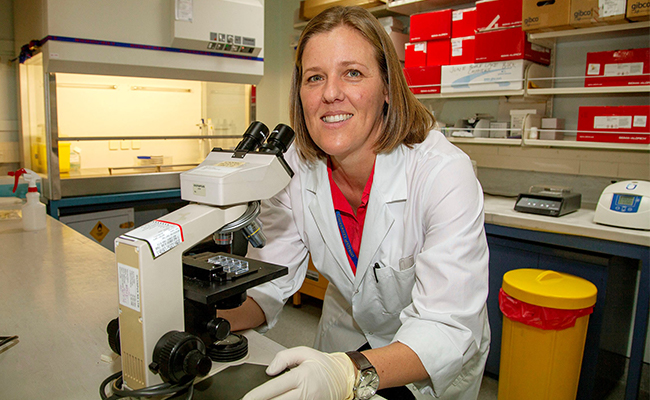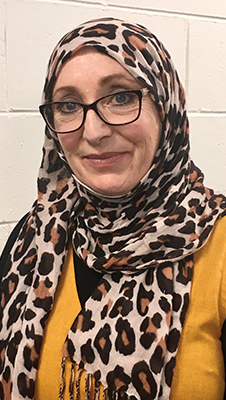Friday 14 August 2020 9:30am

Dr Amy Scott-Thomas
Christchurch researchers investigating the ongoing impact of mosque attacks, a better test for Legionnaires’ disease, and ways of predicting dementia in Parkinson’s disease patients are among the recipients of more than $830,000 of Canterbury Medical Research Foundation (CMRF) funding.

Dr Ruqayya Sulaiman-Hill
The CMRF awarded almost $1 million in new funding to nine projects – eight of which were awarded to University of Otago, Christchurch researchers.
University of Otago, Christchurch Associate Dean, Research Professor Lisa Stamp says CMRF’s support enables researchers, particularly those early in their careers, to stay in the field and try to make a difference to health outcomes.
“We are grateful for CMRF’s support. Getting funding for health research is likely to be more difficult in a financially uncertain post-COVID environment, but the pandemic has demonstrated science and evidence are essential, more now than ever.”
Dr Ruqayya Sulaiman-Hill has Health Research Council funding to study the impact of the terror attacks on those present at the two affected mosques on March 15. The new CMRF funding will allow her to extend the study to adult family members of those who survived the attacks and explore the impact of living with survivors of the traumatic event.
“We are grateful for CMRF’s support. Getting funding for health research is likely to be more difficult in a financially uncertain post-COVID environment, but the pandemic has demonstrated science and evidence are essential, more now than ever.”
Dr Amy Scott-Thomas was funded to develop a urine test to diagnose Legionnaire’s disease, a common form of pneumonia. She says in Canterbury a quarter of patients hospitalised with Legionnaire’s disease end up in the intensive care unit and one in 20 die. Diagnosis and access to the correct antibiotics is crucial but only half of patients suspected of having the disease can perform the existing mucus test for diagnosis.
The six other successful University of Otago, Christchurch projects focus on:
- Finding signs of cognitive decline and dementia in a decade’s worth of brain scans of Parkinson’s disease patients: Dr Tracy Melzer
- Brain cell-killing oxidants and Alzheimer’s disease: Dr Leon Smyth
- Developing new biomarkers for heart failure: Dr Sarah Appleby
- Super charging heart-protective hormones: Dr Nicola Scott
- Developing a new drug for inflammatory tissue damage: Dr Louisa Ashby
- Finding a chink in Streptococcus pneumoniae’s armour: Dr Nina Dickerhof
